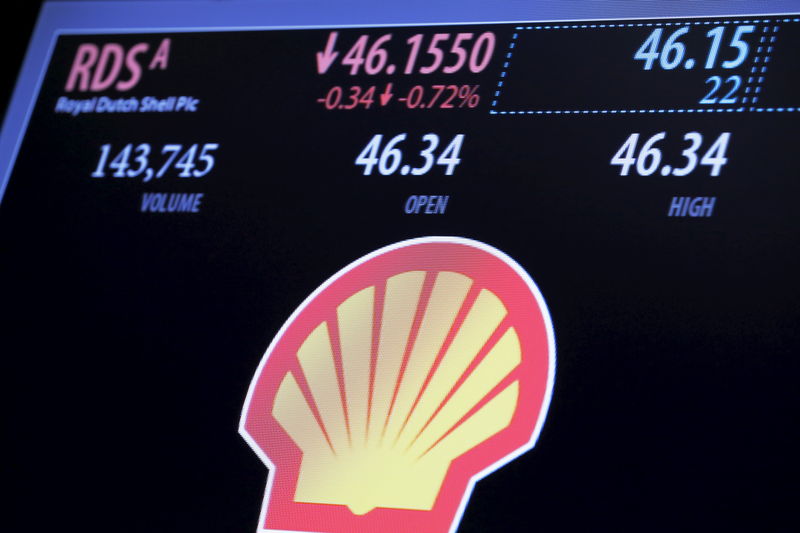By Karolin Schaps
THE HAGUE (Reuters) - Royal Dutch Shell (L:RDSa) shareholders approved its $50 billion takeover of BG Group (L:BG) on Wednesday, clearing the last main hurdle to creating the biggest liquefied natural gas (LNG) trader in the world.
BG shareholders are also expected to approve one of the biggest deals in the energy sector in the past decade at a meeting on Thursday, a vote that would allow the two oil and gas companies to merge on Feb. 15.
Few investors have openly challenged the deal's strategic benefits for Shell. But with oil languishing near $30 a barrel and only a slow recovery forecast, some had questioned the viability of a deal that would increase Shell's debt burden.
Shares in BG were up 1.3 percent at 1325 GMT, while Shell's B shares traded 0.5 percent lower, both outperforming a 0.9 percent fall in the European oil and gas index (SXEP) and valuing Shell's cash and share offer at about $50 billion.
"Our immediate focus is on the successful completion of the transaction and we now await the results of tomorrow's BG shareholder vote," Shell Chief Executive Ben van Beurden said.
In the vote at the meeting in The Hague, 83 percent of Shell shareholders voted in favour of the deal with 17 percent against. More than 40 percent of Shell's shareholders also own about half of BG's stock, according to Reuters data.
If the deal is approved by all shareholders Shell will become the world's most powerful LNG trader and gain access to valuable oil resources off Brazil and in Australia.
Some shareholders at Wednesday's meeting had expressed concern about Shell overpaying for BG, based on the near halving of oil prices since the deal was announced on April 8 last year.
Shell Chief Financial Officer Simon Henry said on Wednesday that every $10 decline in the price of a barrel of oil shaves $4 billion off the combined Shell-BG cashflow.
The companies expect to save about $3.5 billion in overlapping costs following their merger.
Other shareholders said they were concerned about Shell betting more heavily on fossil fuels through the BG deal, rather than investing in renewable energy.

"We have voted against this deal because we think there is a much better way to spend billions: in renewable energy," Mark van Baal, founder of Follow This, a group of Shell shareholders supporting green energy with about 5 million euros of shares.